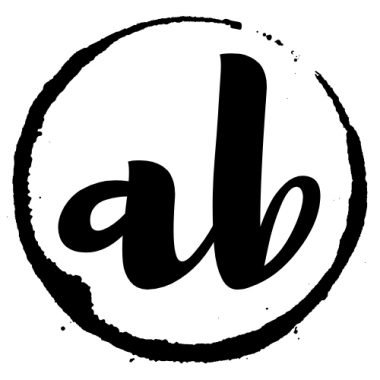Do you have the feeling that your dream job is still out there? Or that your career doesn’t fit with your values or the shape of your life any more? A career break might have given you space to daydream of something different… and it’s the perfect opportunity for reinvention.
This is the second of a three-part series about coming back from a career break with confidence and purpose. I’m sharing the amazing resources that I found as I made the career shift to copywriting. Part one is aimed at you if you want to return to work and have a clear idea of the role you’re targeting. Part two is for you if you want to find a new direction.
Here are five steps to move you into action when your mind is racing but you can’t find your path…
1. What do you really want to be when you grow up?
Start at the beginning: make an honest appraisal of your passions, hopes, skills and goals. The important bit is not to censor yourself in any way. Don’t ignore your loves because you can’t think of a way to make them pay. Don’t write an answer because you think your partner, mum, former boss or social media channels would approve.
Dream big for a moment and see what pops up.
There are various forms of “Dream Job” statements around the web. Try filling the blanks in this form from 365careers.com:
“My dream job is work where I get to use my gifts and talents of ___________, __________ and _________ to excel at what I love to do, which is _____________, _______________ and ____________.
I get to fulfill my life calling of __________________________ and work in inspiring places such as ___________, ________________, and __________.
Surrounded by the people I love to work with and for, _________, ___________, and __________ … I solve the problems, issues or needs I love to work on, such as ____________, ______________ and _______________ .
My workday is filled with amazing experiences, such as ______________, ________________, ___________ and I get to use my favorite things, like _______________, _____________, _____________ and __________.
I am finally able to afford the life I want, where I can be ___________, ___________, do _________, _____________ and have _____________, _____________ and ______________.”
As Jeff Goins suggests in his book The Art of Work, look through your life and work history and try and identify a thread. Which bits made you feel alive? What work are you most proud of? Which projects made you happy, even (especially) if no one else seemed to enjoy them as much as you?
2. Get a career coach
A career coach might be a good investment if you’re struggling to pick your path. This is going to cost you some money, but bear with me…
When I first started working with Can Will Consulting, I was about to sign up for a course. I was wearing out my Amazon Prime membership with daily book deliveries and researching like mad.
Before I handed over £4,000+ in tuition fees and committed my family to long weekends apart, coach Candace Williams took me through my career history again. Suddenly, the writing thread jumped out. I didn’t need to spend a fortune starting from scratch, I needed the clarity and courage she gave me to build on something I already loved.
Other friends have found that a coach has given them focus and confidence they couldn’t manage on their own. They’ve come up with ideas and delivered on plans that have floated around in their heads for months or years. A coach might save you a fortune in time and money.
3. Get some cheap, or even free, coaching
If hiring someone isn’t an option, another approach is to find a writer or coach you like and join their digital “tribe”. To market themselves, it’s common for influencers to create a raft of content – videos, check lists, planners, eBooks, a Facebook group… – that’s either completely free or you can access for free when you buy their book.
I first started writing regularly after taking part in a “30 Day Challenge” with John Williams, author of “Screw Work, Let’s Play”. John doesn’t run these courses any more but he recently offered a small free version for Psychologies magazine, complete with Facebook group, webinars and videos.
Marie Forleo, Jeff Goins and Marianne Cantwell offer similar resources if you’re looking to find a new path. Start with an Amazon search to identify authors you’d like to hear more from and then visit their own sites to see what supporting materials they offer.
4. Slow down
Maybe an idea is nagging at you by now. Maybe you have a feeling so strong that you want to leap straight in…
Before you commit time and money to something completely new, it’s a good idea to pause and do some testing. There are several reasons you might not want to rush into a new idea.
My coaching sessions made me see that I was signing up for another postgrad qualification because I’d lost confidence in myself. In my head, I’d do the course and then I’d be happy to start again. In reality, I’ve been writing successfully and happily for years – changing professions was simply a distraction.
And plenty of jobs look more attractive from the outside. It’s easy to fall for the idea of the new but be really sure that you understand all that’s involved. You might just need to tweak your old career path – swap to the private sector, or the public sector, or go freelance – to get a job you love.
5. Experiment, experiment, experiment…
As you get closer to a new idea, think of some ways of testing it out. Find a conference in the field you’re interested in and buy a ticket, or even volunteer to help. See if you feel energized by the people and the language and the topics.
Cast around your network and see if you know someone already in the job whose brains you can pick in exchange for coffee.
Again, social media is your friend. Start following people who are doing the job or working in the industry – you can see if it’s truly appealing and also begin making useful contacts. The world is awash with bloggers sharing their experience. Form some relationships before you leap.
If you have a business idea you could create a blog. You can then use it to develop and test your plans and begin building your own tribe. You’ll start finding your cheerleaders and have a demonstrable following if you look for funding later on.
Maybe you want to take your experience and consult, or turn a hobby into a job. Offer to help friends and family, or set up a shop on Etsy. Find ways of running small experiments so you can trial and refine your ideas.
Happy hunting for your new career! My next post will be about resources if you decide to start your own business or freelance career. In the meantime, I’d love to hear from you, and I’d love to help you find the right words…

